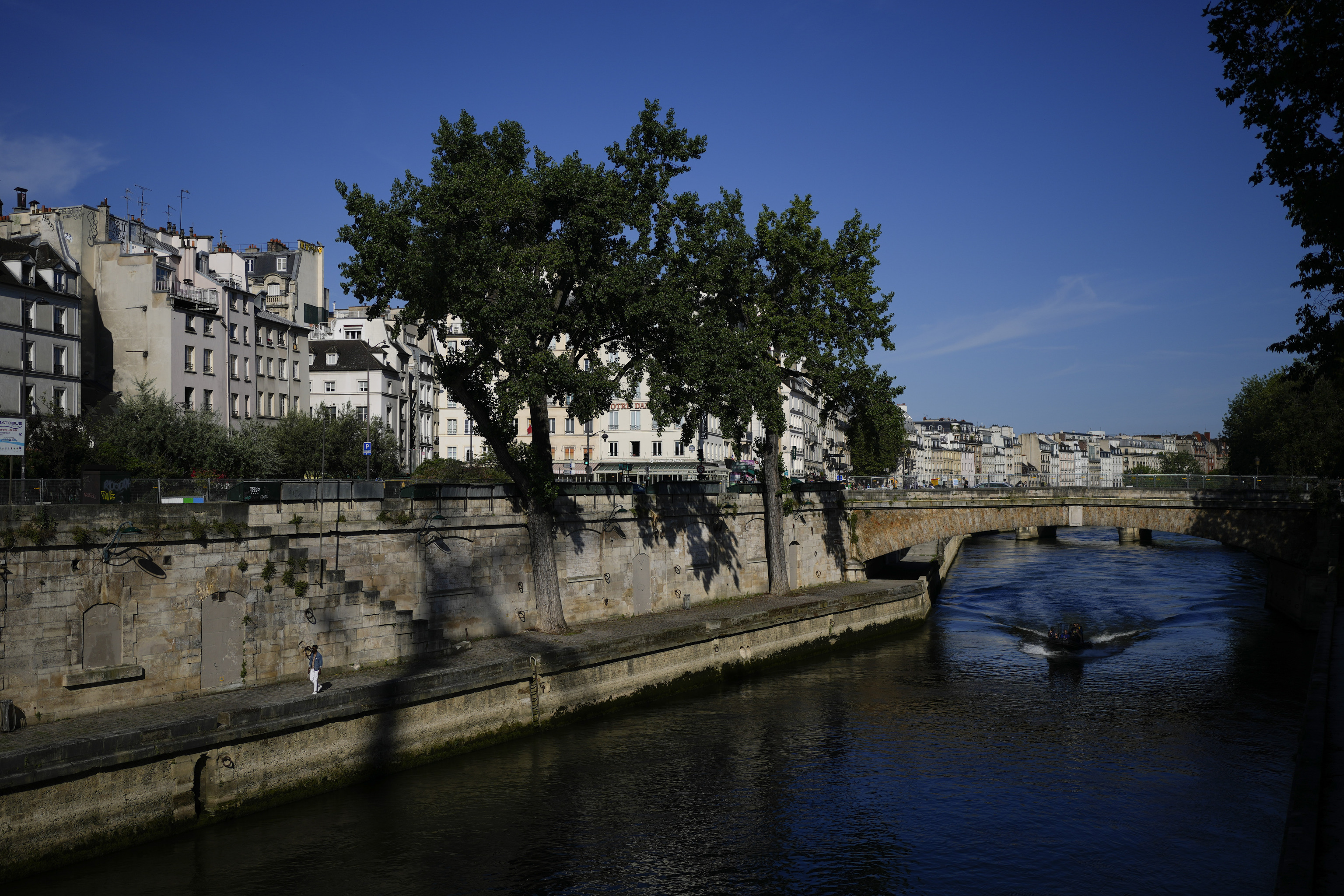The Seine and the quality of its waters continue to be a headache for the organizers of the Paris Olympics. This time, the heavy rainfall on Friday and Saturday has forced the cancellation of triathlon training, the first event scheduled to take place in the main river of the French capital.
In the early hours of Sunday, the Games organizing committee, the International Triathlon Union, and local authorities jointly decided to suspend these initial training sessions. A decision formalized in an official statement indicating that the water quality did not offer the "necessary guarantees" to preserve the athletes' health.
This adds to the information published on Friday by the broadcaster France Info. This local media revealed that on July 17, when the Mayor of Paris, Anne Hidalgo, and the President of the Olympic Organizing Committee, Tony Estanguet, swam in the Seine, the levels of concentration of the two types of bacteria used to assess the appropriate conditions, Escherichia coli and enterococci, were above the maximum recommended by the National Agency for Health, Food, Environment, and Occupational Safety (Anses).
According to this information, the bacteria concentration in several sections of the river exceeded the threshold of 900 colony-forming units (CFU) per 100 milliliters set by Anses. When asked about the connection between this issue and the cancellation of Sunday morning's training, Pierre Rabadan, deputy to the Mayor of Paris, Sports Councilor, and responsible for the Games Organization, did not specify the bacteria concentration level but confirmed that the "excess concentration was not very concerning."
Rabadan expressed optimism in his statement to the media, stating that despite the rain, "everything that has been implemented has worked, preventing overflows, so a satisfactory water quality is expected soon." However, as he also clarified, "everything will depend on the weather forecast for the coming days."
Similarly, Pierre-Antoine Molina, the general secretary of public policies in the region, indicated that the issue is solely due to rain levels being higher than expected at this time of year. "From 15 to 20 millimeters (mm) on Friday and an additional 10 mm on Saturday is equivalent to approximately 15 days of rainfall in a normal July month."
Considering the more favorable weather forecast for the next 48 hours, both the organizing committee and the International Triathlon Union are confident that the water quality will return below the limits before the start of the official competitions. In the worst-case scenario, other alternatives such as postponing the events for a few days or moving the competitions to Vaires-sur-Marne, on the Marne River, east of the city, are being considered.
Opting for relocation would be a tough blow for the Games' organization and especially for local and state authorities. It is worth noting that, in addition to the sporting use of the Seine in these Games, around 1.4 billion has been invested since 2016 in a project to improve water quality and enable, starting in the summer of 2025, swimming in the section of the river that crosses Paris, an activity that has not been possible for the past 100 years.
